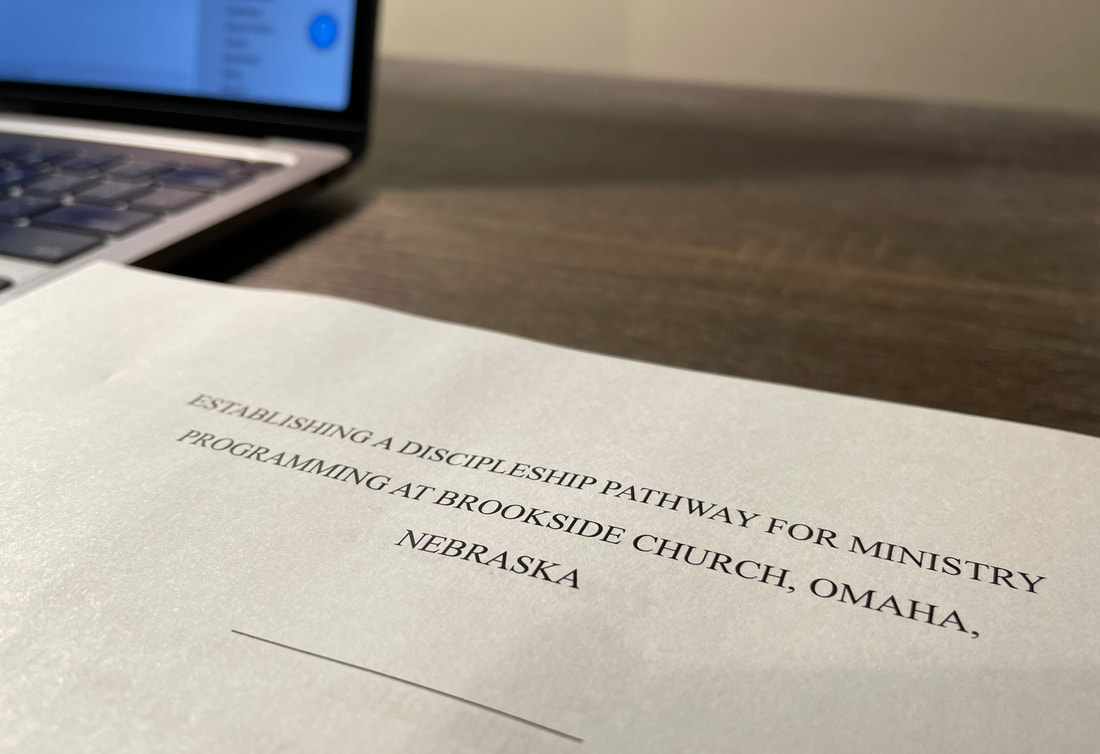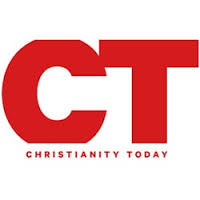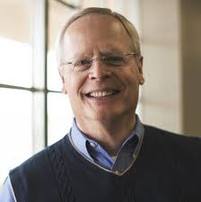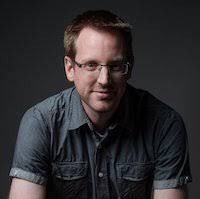|
Graduate-level theological training is coming to Omaha! This training is local and it’s live — so this about more than just consuming content. You can participate in a way that forms you, builds community, and serves others.
Oh yeah — and you’ll see that this training is SO AFFORDABLE. (Which is of course always good!) Below you'll find a few brief videos orienting you to what's coming:
One more thing before you scroll to the videos: I've included the links here that I mention in the videos, so you have easy access to them:
Now, on to the videos:
0 Comments
I'm a big fan of discipleship pathways. It's good for churches to have intentional ways forward (e.g. programs, resources, etc.), helping people grow as disciples (and disciple-makers). I'm encouraged that I anecdotally hear more and more churches uses the language of "discipleship pathway."
But I also want to paint the picture of a discipleship pathway as a four-lane road, rather than a one-lane bridge. Allow me to explain what I mean: A one-lane bridge is narrow and rigid. There's only one way forward, and it usually slows down traffic. There's only one way to get to your destination, whether you like bridges or not. When some people see a one-lane bridge, they do a U-turn and head the other direction. For "one-lane bridge" discipleship pathways, every next step along the path of discipleship (and every tool that's part of that next step) is planned out and mandated. I'm concerned that it can feel too rigid, and may even impede progress. But gladly, there's another way. Theology matters deeply. It summarizes and articulates what you believe about key topics that matter deeply. As Christians, the Bible must inform and invigorate our theology, as it is the final standard of authority for us — the primary means by which we discover who God is, what He's like and what He's doing, and what that invites us into. (You can find a bit more on the value of theology here, here, and here. It's something I plan on continuing to write about and advocate for.)
But agreeing that theology is important doesn't end the conversation; rather, it opens up the conversation to other worthwhile topics — topics like "What does theology offer?", and "How should we define it?" Or another topic, "How do we do theology well?" There are so many things to factor into doing theology well: for example, (1) we do theology with the whole Bible as our final authority, (2) we do theology in a spirit of confidence and humility, (3) we do theology for the purpose of increasing communion with the Triune God and advancing His mission in the world. All of these (and more) are important and worth continued reflection. In this post I want to focus on the relationship between theology and the local church. Specifically, I want to make a brief and very introductory case that when thinking about theology and the local church, four prepositions should shape the relationship: we do theology for, in, by, and with the church. Project accomplished!
Over the last two-and-a-half years, I have been chipping away at a Doctor of Ministry (DMin) in Applied Theology from The Southern Baptist Theological Seminary in Louisville, KY. I've loved the process (though it's been work for sure!), and am excited to be at this point where my final project has been defended, accepted, and successfully published — and now I'm just awaiting graduation in December. I'm excited to see how God might use this in and for the local church, as I seek to steward this education faithfully and for the advance of God's work. I'm getting questions about my doctoral project / dissertation, and so figured I'd provide a few snapshots of my work here. The title of my project is "Establishing a Discipleship Pathway for Ministry Programming at Brookside Church, Omaha, Nebraska." The "really short version" is that I've been working on how local churches as the local church can make disciples in obedience to Jesus' command in Matthew 28:19-20. My research focused on painting a clear PICTURE of discipleship from the Gospel of Matthew and the early chapters in Acts. Then I moved into constructing a concrete PATHWAY for discipleship that local churches can benefit from and apply practically. It's been fun already to "translate" this into two courses (both five sessions) I've been able to teach at Brookside — one specifically designed for ministry leaders, and another for the broader congregation. Below I've included PDF snapshots of the (1) Table of Contents and (2) abstract where the work is summarized further. This last weekend I preached on "Gospel Ordinances"—baptism and the Lord's Supper—and talked about how these two practices help the church stay tethered to the gospel. I’ve sat in a bunch of classrooms and academic environments hearing about the ordinances (baptism and Communion/the Lord’s Supper), but haven’t heard many sermons on them. But these practices ARE FOR THE CHURCH! It's important to preach on these things in the setting of gathered worship where they are regularly practiced. If you’re not a Christian or are brand new to church, this’ll be super helpful at helping you understand these practices that may seem weird / foreign to you. If you’re someone who grew up in a different tradition than Brookside, watch the message—we'll open up the Bible and you’ll see where we’re coming from. If you’ve been following Jesus for a long time, we need to watch that these things don’t become mechanical. Tomorrow we’ll breathe fresh life into the meaning behind them. If you're interested, here's a brief outline of what I covered:
If you were talk with most any seasoned teacher, they'd likely nod in agreement that the craft of teaching includes the idea of "taking others somewhere." This could mean helping them grasp new content, see things in a new light, practice new habits, change how they relate to others, and grow in virtue.
To play off this picture that teaching is taking others somewhere, here are a few brief tips I'd recommend to make this "trip" of teaching effective at helping the learner get from point A to point B. Looking for some of the best biblical and theological books to read in 2019? Below I've collected and listed five "sources" that are worth listening to for some worthwhile reads. My hope is that as you scan these lists, you'll find at least 2-3 books that strike your interest enough for you to pick up the book and dig in. Click on either the image or the title below and you'll be taken directly to a page where you can see which books are on that particular list. My Top 5 Reading Lists of 2018Interested in more?Below you'll find a few other links to related posts. Happy reading!
In Luke 9:23-25, Jesus makes some bold statements about following Him. In a sense, these verses provide a “101 Class” on discipleship.
“Disciple” is a word you’ll hear in church world a lot - and rightfully so. One of Jesus’ last commands is for the church to go and “make disciples” of all nations (Matthew 28:19-20). Making disciples who make disciples should be on the short list of priorities of every church. The word disciple literally means “learner.” Don’t just think of a learner in some classroom environment, though. Think “apprentice.” Think “someone learning a skill or a lifestyle.” As followers of Jesus, we’re apprentices of Jesus. Or another way to look at it is that a disciple is someone who walks in the footsteps of someone else. When I was in college, I went on a couple of backpacking trips in Colorado - one to fulfill some P.E. credit, and one as part of a team building experience for R.A.s. They were great: Get away from civilization, sleep in tents, see some awesome sights in the Rockies, and do a whole lot of hiking. And both times I went, the guide we were with reinforced the value of paying attention to the person in front of you. To watch where they stepped and to follow that same path. To literally walk in their footsteps as much as you could. As disciples of Jesus, then, we walk in His footsteps. And if the path He went on involved suffering and self-denial (Jesus tells us this in Luke 9:22), we can’t go around that ourselves or skip that part of the trail as His followers. Which is exactly where Jesus takes His instruction to us in Luke 9:23-25:
I love to teach. I believe that a healthy teaching ministry is vital to the life of a vibrant local church. And I want to emphasize a healthy, deeply-understood gospel centrality as I teach.
Since that's the case, I'm grateful for how Trevin Wax - Bible and resource publisher at Lifeway Christian Resources - articulates what gospel-centered teaching looks like in this brief (less than 3 min) video clip. I'm including it here, both to circulate good content via this site, and to keep it for handy reference for the future! :) Based on the number of "hits" each month, here are the top 5 posts here on the Brookside Institute blog for the last six months - July 2017 through December 2017.
Take a minute to scroll through the list below, and either catch up on things you may have missed or revisit things that were especially helpful. |
Tim WiebeChristian. Husband. Father. Pastor. Learner. Contributor. Reader. Categories
All
Archives
June 2024
|
© 2014-2024 | 11607 M Circle, Omaha NE, 68137 | www.thebrooksideinstitute.net














 RSS Feed
RSS Feed
